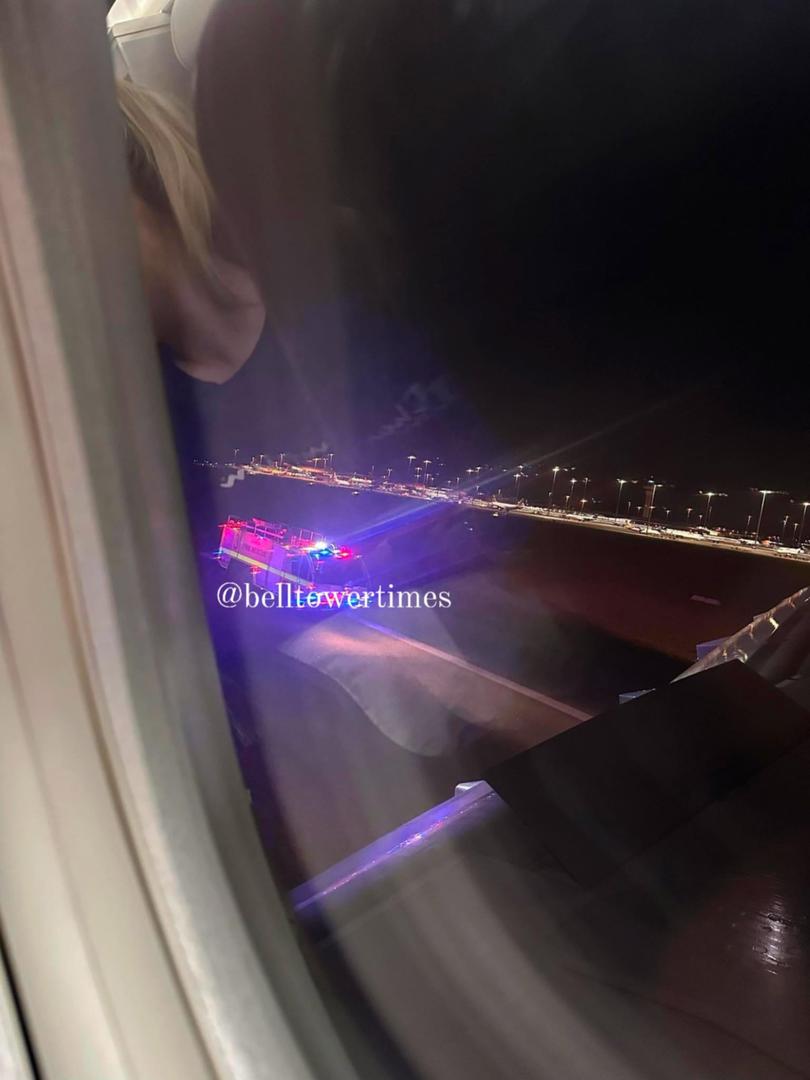Qantas pilots’ actions praised after engine shut down on flight from Melbourne to Perth
A Qantas flight from Melbourne has had to make a priority landing in Perth after its pilots were forced to turn off one of the plane’s engines.
A Qantas flight from Melbourne had to make a priority landing in Perth on Monday night after its pilots were forced to turn off one of the plane’s engines.
Passengers say they heard a loud bang before the mid-air scare. Qantas flight QF781 landed safely at 9.37pm local time, about 52 minutes later than scheduled.
It was met by emergency services on arrival at the airport but taxied to the gate under its own power and passengers disembarked normally.
Sign up to The Nightly's newsletters.
Get the first look at the digital newspaper, curated daily stories and breaking headlines delivered to your inbox.
By continuing you agree to our Terms and Privacy Policy.Qantas confirmed the incident, saying there was an issue with one of the plane’s engines as it approached Perth.
“The pilots followed the procedures for this type of incident and manually shut down the engine and requested a priority landing. These aircraft are designed to safely operate with one engine.
“The aircraft landed safely and without further incident in Perth. We know this would have been unsettling for customers on board and we thank them for their cooperation and understanding.”
The plane, an Airbus A330-200, will now be inspected by Qantas engineers.
Passenger Lachlan Britt said there was a “massive bang” and the plane shuddered, shortly before the descent to Perth.
“You could tell something had changed if you fly a lot just with the sound of the plane afterwards,” he told The West Australian.
“I looked around a bit to see if anything was evident out a window but couldn’t see much.
“The cabin crew were quick to start opening everything up however, curtains etc. Then the pilot came on and advised they’d shut down engine one.”
Mr Britt said there were a few nervous faces around and that once the plane had landed safely on the tarmac, passengers let out a sigh and a round of applause.
“Was a sight to see out the windows with the fire crews etc. on the runway just in case of issue . . . I fly a lot, and it’s the first time I’ve ever sat there and thought, hmmm s***, so even being calm things certainly cross your mind!” he said.

“The round of applause from everyone as we touched down was a pretty cool moment and plenty of people hitting their phones straight away likely messaging people.
“But I’ve had worse landings on planes fully working.”
Another passenger wrote on social media that she cried the whole way down.
“I cried the whole time, it was scary,” she wrote.
“Was very loud, woke a lot of people up and you could feel it. Crew and pilots did amazing!! Landing was smoother than most flights I’ve been on too.”
One passenger wrote on social media, “Passengers on a Qantas flight from Melbourne to Perth tonight heard a loud bang before being told an engine was cooked while starting the descent into Perth. Pilot and crew on board did a stellar job, plane safely landed and everyone is safe. That’s a story for grandkids.”
Tony Lucas, president of the Australian and International Pilots Association, said incidents such as the one on Monday night were “extremely rare” but Qantas pilots were well prepared to manage them safely.
“The safety of our passengers, crew and cargo is always the priority for any pilot and we rigorously train for these unlikely scenarios,” he said in a statement.
“The QF781 crew displayed great professionalism, skill and expertise in delivering a safe outcome for everyone.
“This incident demonstrates that having two well-rested and well-trained pilots on the flight deck is the best safety feature available to aviation.”
